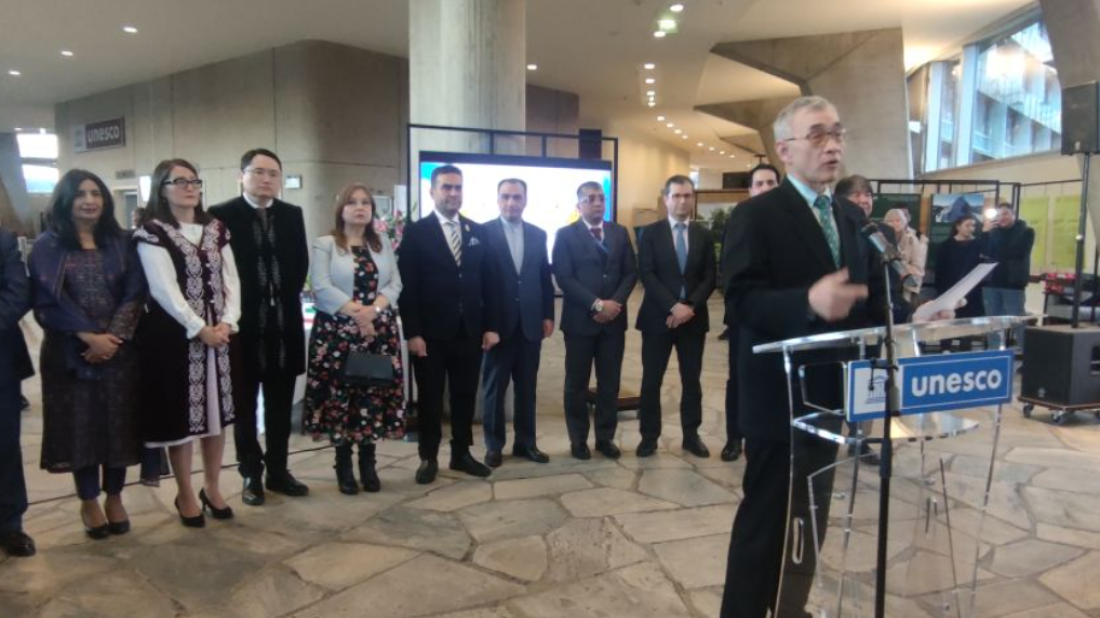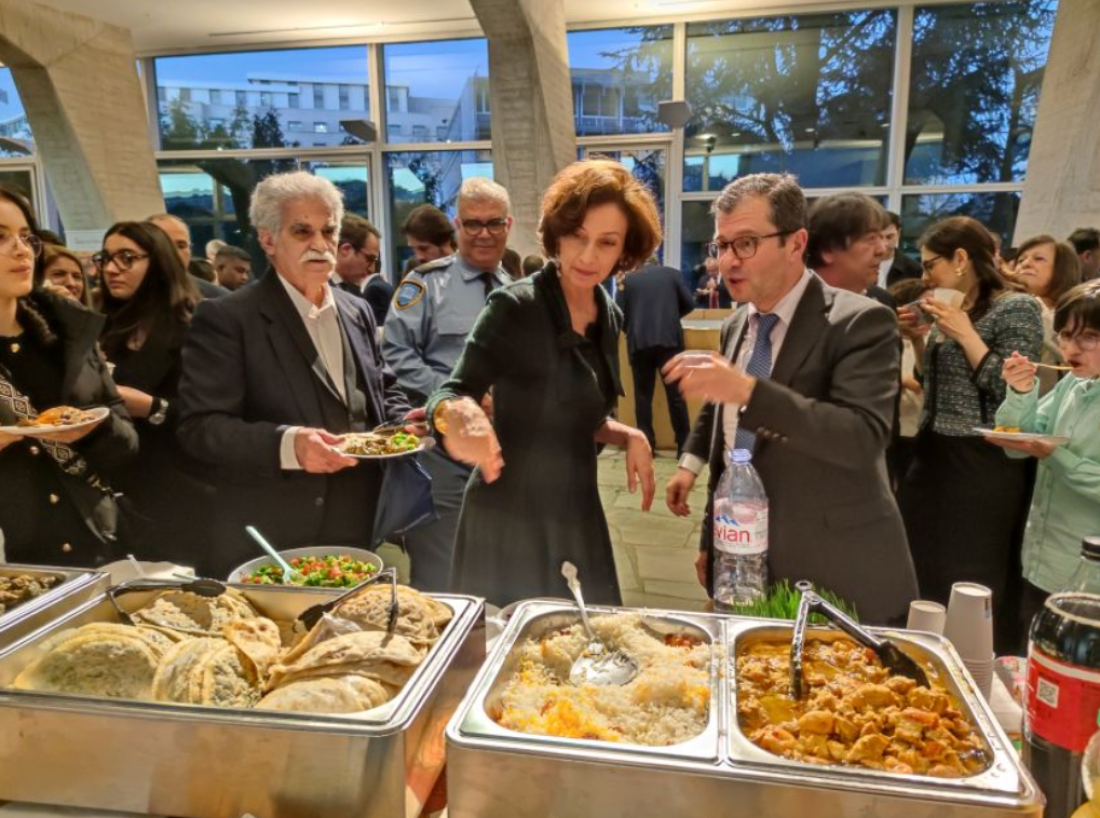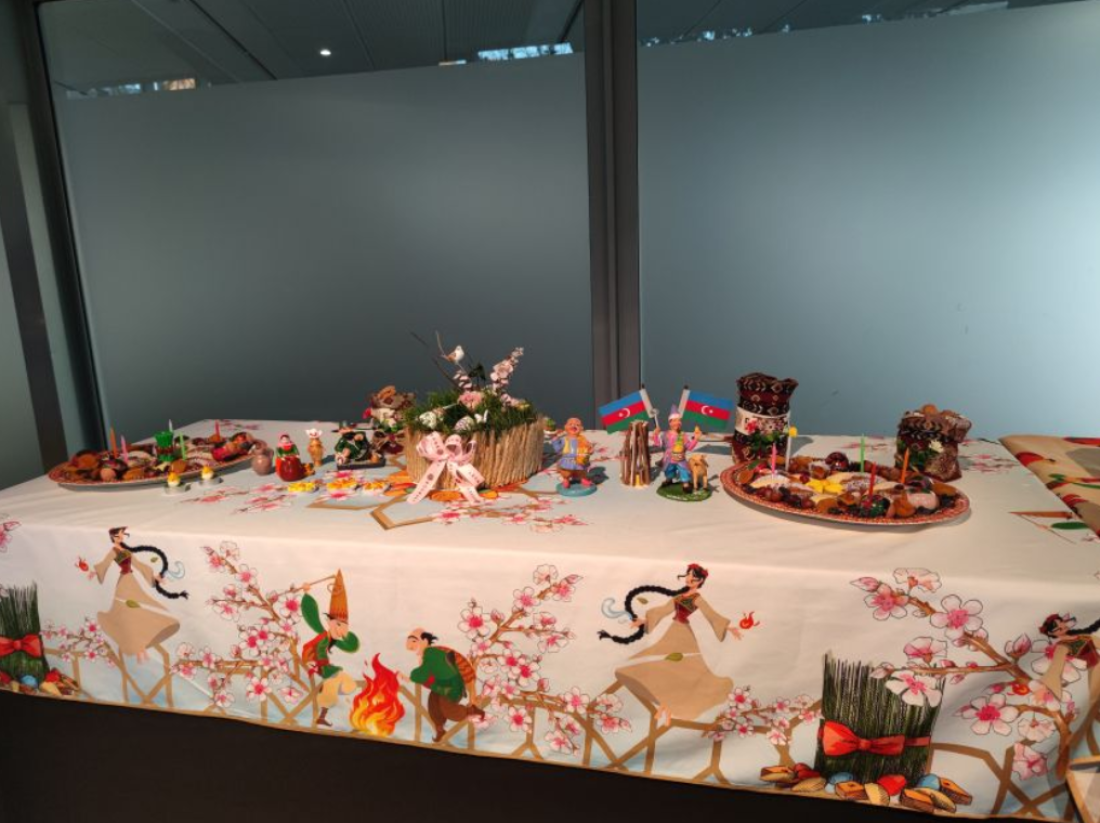U.S. says $5 bln pledged for Gaza reconstruction as peace council meets
White House Press Secretary Karoline Leavitt said on Wednesday that $5 billion pledged by member states of the Gaza Peace Council will be directed tow...
Novruz, a centuries-old celebration marking the arrival of spring, brings together multiple countries to honor peace, renewal, and cultural unity, with UNESCO recognizing it as part of the Intangible Cultural Heritage of Humanity.

Novruz, a vibrant and deeply significant cultural celebration, marks the arrival of the vernal equinox and heralds the beginning of spring. Recognized by UNESCO as part of the Representative List of the Intangible Cultural Heritage of Humanity, Novruz is celebrated in multiple countries across the region, including Azerbaijan, India, Kyrgyzstan, Pakistan, Türkiye, and Uzbekistan. The holiday has a rich history that spans over 4,000 years, reflecting the diverse cultures and traditions of the people who celebrate it.
Novruz: A Regional Celebration
The festivities for Novruz recently took place at UNESCO's headquarters, where the Permanent Missions of several countries came together to organize a vibrant event. The Ambassador of Kyrgyzstan, Sadyk Sher-Niyaz, highlighted the spiritual importance of Novruz, underscoring its themes of peace, solidarity, and cultural identity. These values, passed down through generations, serve as the foundation for the celebration, which unites people across borders.
UNESCO's Deputy Director-General, Xing Qu, and Director-General Audrey Azoulay also spoke on the significance of Novruz, emphasizing how the holiday serves as a bridge between cultures and symbolizes hope for the future. The event featured traditional music and dance performances, showcasing the unique customs of each participating country. A video highlighting Novruz practices from various regions, along with a banquet of traditional dishes, added to the cultural immersion.


Traditions and Symbolism
Novruz’s celebrations are deeply rooted in ancient traditions. The holiday marks more than just the arrival of spring—it represents renewal, rebirth, and the triumph of light over darkness. In Azerbaijan and other regions, the lead-up to Novruz is filled with rich customs, particularly the honoring of the last four Tuesdays of winter. Each Tuesday is dedicated to one of the four essential elements—Water, Fire, Wind, and Earth—each carrying its own symbolic meaning and significance in preparing for the new season.
The heart of Novruz lies in its traditions of cleansing, renewal, and togetherness. People clean their homes to rid them of the old year's negativity, and they prepare festive dishes such as saffron pilaf, shekerbura (sweet pastries), and pakhlava (baklava), which are shared among family and friends. On the day of Novruz itself, families gather around a table with a symbolic spread, including the seven traditional items that represent various elements of life: wheat, garlic, vinegar, apples, sumac, coins, and hyacinth.
In addition to the feasts, there are many cultural activities. From fireworks to jumping over bonfires to signify the purification of the soul, the celebrations are full of symbolic acts meant to usher in good luck and health for the coming year.
Novruz in History
The history of Novruz dates back thousands of years, with roots in Zoroastrianism, the ancient religion that arose in Persia (modern-day Iran). It has long been associated with themes of rebirth, balance, and the arrival of the new season. Over time, it has become a unifying celebration for diverse cultures across Central Asia and the Caucasus, with each region adding its own unique practices.
In recognition of its importance, UNESCO inscribed Novruz on its Intangible Cultural Heritage list in 2009, ensuring that future generations understand the significance of this ancient festival. In 2010, the United Nations General Assembly further solidified Novruz's global status by declaring March 21 as International Novruz Day.
The Celebration in Istanbul
In addition to global observances, a special Novruz celebration was held in Istanbul, organized by the Turkey-Azerbaijan Solidarity and Culture Association (ISTAD). The event began with the playing of the national anthems of Azerbaijan and Turkey, followed by a commemoration of the martyrs. Speeches were made by prominent figures, including Shamil Ayrim, Chairman of the Azerbaijan-Turkey Interparliamentary Friendship Group, and Zaur Allahverdizade, Consul of Azerbaijan’s Consulate General in Istanbul. They spoke about the long-standing traditions of Novruz, which are an integral part of the Turkic world’s shared cultural heritage.
The ceremony concluded with a concert program that brought the spirit of Novruz to life through music and dance, further reflecting the lively and joyous atmosphere of the holiday.
Novruz’s Global Significance
More than just a regional holiday, Novruz has become a symbol of cultural unity, celebrating the shared values of peace, renewal, and harmony across various nations. Its traditions continue to thrive and evolve, remaining an essential part of the cultural fabric of the countries where it is celebrated. Novruz not only connects generations but also fosters a spirit of international solidarity, bringing together people from different backgrounds to share in the warmth of the season and the promise of new beginnings.
Ruben Vardanyan has been sentenced to 20 years in prison by the Baku Military Court after being found guilty of a series of offences including war crimes, terrorism and crimes against humanity.
The drumbeats have finally faded at the Marquês de Sapucaí, bringing the competitive phase of the Rio Carnival 2026 to a dazzling close. Over two marathon nights of spectacle, the twelve elite schools of the "Special Group" transformed the Sambadrome into a riot of colour.
President Donald Trump said he will be involved “indirectly” in nuclear negotiations between the United States and Iran in Geneva, as both sides resume diplomacy against a backdrop of military pressure and deep mistrust.
Peru’s Congress has voted to censure and remove José Enrique Jeri Ore from his posts as President of Congress and acting President of the Republic, just four months into his tenure, citing undisclosed meetings with Chinese businessmen and alleged hiring irregularities.
Start your day informed with AnewZ Morning Brief: here are the top news stories for the 17th of February, covering the latest developments you need to know.
Israel is preparing for the possibility of receiving a green light from the United States to launch strikes against Iran’s ballistic missile system, according to Israel’s public broadcaster KAN.
White House Press Secretary Karoline Leavitt said on Wednesday that $5 billion pledged by member states of the Gaza Peace Council will be directed towards the reconstruction of Gaza.
Two Palestinians were killed on the first day of Ramadan after Israeli forces opened fire in the Gaza Strip, according to local sources and hospital officials.
Aghdam’s Qarabag experienced a 6–1 defeat to England’s Newcastle United in the first leg of their UEFA Champions League play-off tie.
British Steel has secured a multi-million-pound order to supply rail for a major high-speed railway in Türkiye. Backed by UK Export Finance, the deal will see 36,000 tonnes of rail used on a 599km line between Ankara and İzmir, prompting the company to resume round-the-clock production.
You can download the AnewZ application from Play Store and the App Store.

What is your opinion on this topic?
Leave the first comment